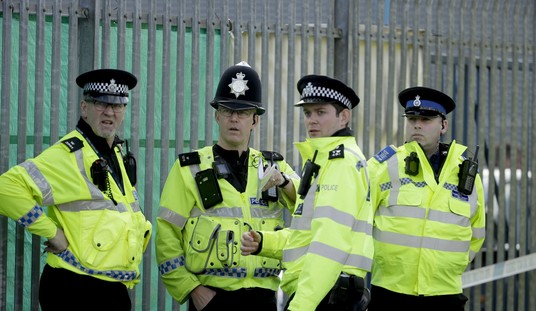A request from the FBI published last month in the Federal Register has privacy advocates up in arms, this time for what appears to be good reason. The bureau has moved on from its old fingerprint tracking system for criminals and suspects to a more 21st century model known as the Next Generation Identification (NGI) system. NGI holds and categorizes more than one hundred million fingerprints and photographs of people which are available to be searched as part of any criminal investigation. But the feds don’t want the public to be able to demand access to their own records which may exist within those digital walls. (Washington Post)
The FBI wants to exempt its burgeoning national database of fingerprints and facial photos from a federal law that gives Americans the right to sue for government violations of the Privacy Act, such as refusing to tell a person if he or she is in the system.
The bureau also wants to shield its data storehouse from other Privacy Act rules, including one that lets people ensure that the information the government holds about them is accurate.
The proposed exemptions, published in May in the Federal Register, have stirred objections from an array of privacy and civil rights advocates. They say that such carve-outs remove a critical check on the use of the huge database in criminal investigations.
In particular, they are concerned about the bureau’s deployment of still-developing facial recognition technology to identify potential suspects. Such technology, they say, may have lower accuracy rates for black people, young people and women. And they worry that it could be misused to track protesters at political rallies.
This exemption just sounds like a bad idea, though that opinion may come as a surprise to regular readers who know that I’m generally willing to give law enforcement a lot of latitude when it comes to issues of privacy. I have no problem with law enforcement having records of our fingerprints, photographs or even DNA, provided such data is only accessible with a warrant and records are available to the individual so they can challenge their accuracy. These are valuable tools which can help catch the bad guys and save critical time in dangerous, fast moving crime investigations. I know they have my fingerprints on file from my days in the military and it doesn’t bother me a bit.
But blocking this data off from the affected citizens serves no purpose in that cause. You are the best person to know for sure if they have the wrong photo or if the feds have recorded you as being a convict when you’ve never been convicted of anything. In any system as huge as the NGI, mistakes are bound to happen and they could severely impact private citizens in an adverse manner. The FBI’s excuse thus far is to say that they want to ensure ongoing investigations are not compromised by people learning they are the subjects of probes. That makes no sense at all to me. Given the number of records in the system, the simple fact that your name and data shows up doesn’t mean that you’re under investigation. And if the subject is so worried that the feds are onto their scheme that they begin requesting these records, I’m guessing the cat is pretty much out of the bag already.
Also, that new facial recognition software which is being used doesn’t seem to be accurate enough to hit anywhere near 100% reliability yet. (Just ask any Facebook user who gets “tagged” at the wrong place.) Putting in mug shots of people who are picked up by the police and properly identified is one thing. Entering millions of photos and relying on a computer algorithm to sort them all is simply asking for errors by the bushel, so people should be able to know if the photos attached to their names are actually correctly identified. This isn’t just good for privacy concerns, but it will make the system more efficient for law enforcement by eliminating false positives that they need to chase down.
Finally, this entire exemption flies in the face of the Privacy Act of 1974. The existence of this legislation and related laws is one of the main reasons I don’t object more to the normal storage and tracking of data by law enforcement agencies. The process should be open to inspection and quick to respond when errors are found. That’s the whole idea behind it… so we don’t wind up persecuting the innocent while giving us the best chance to catch the guilty.
This exemption should be denied. The FBI can do its job just fine without preventing citizens from seeing their own records and inspecting them for accuracy if they wish.









Join the conversation as a VIP Member